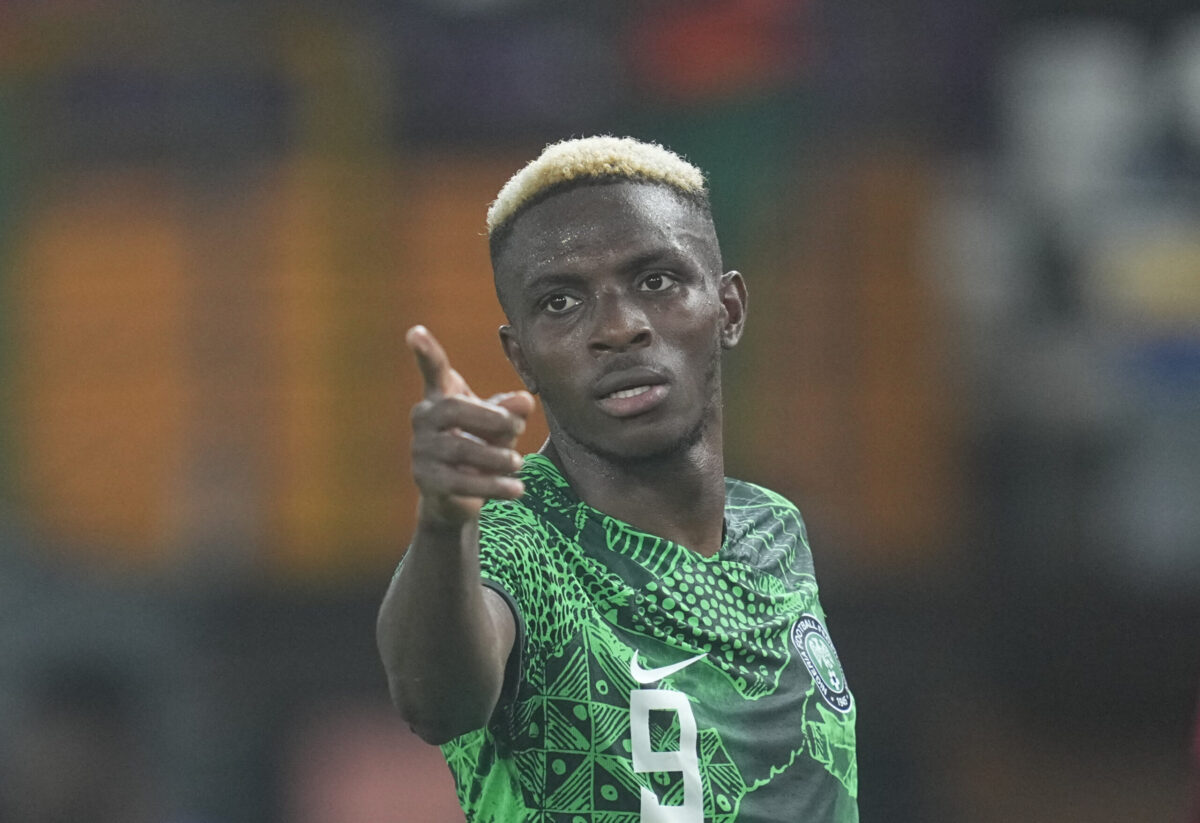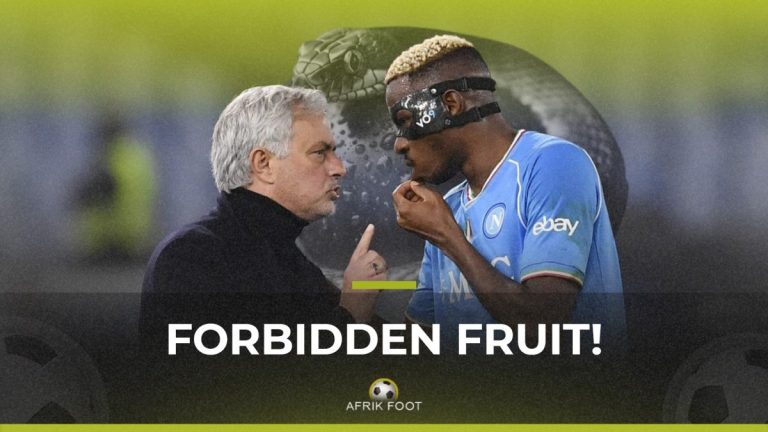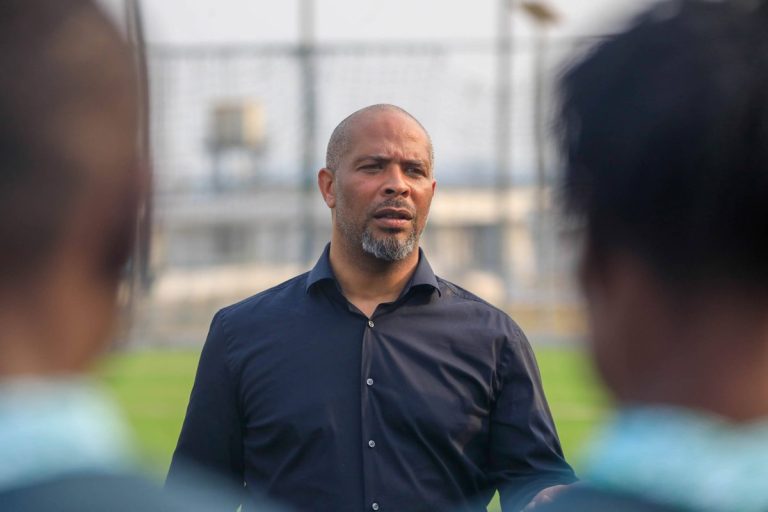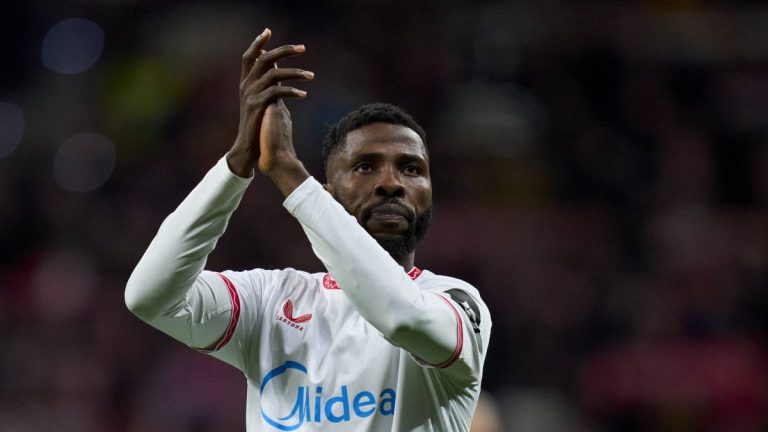Nigeria's Super Eagles finally banished the demons that have been haunting them in the Jollof Derby by ending their 18-year wait for a win over Ghana on Friday, March 22, 2024.
The Eagles continued right where they left off in the Africa Cup of Nations (AFCON 2024), deservedly recording a 2-1 victory over their West African rivals.
In what was interim coach Finidi George’s first game in charge, Nigeria put up a promising display, especially in the first half, with goals from Cyriel Dessers and Ademola Lookman condemning the Black Stars to defeat.
The inquest from the game has so far been positive and it is even more impressive that Nigeria comfortably won the game without their star striker Victor Osimhen. The Napoli forward pulled out of the match after aggravating an old injury, his club said.
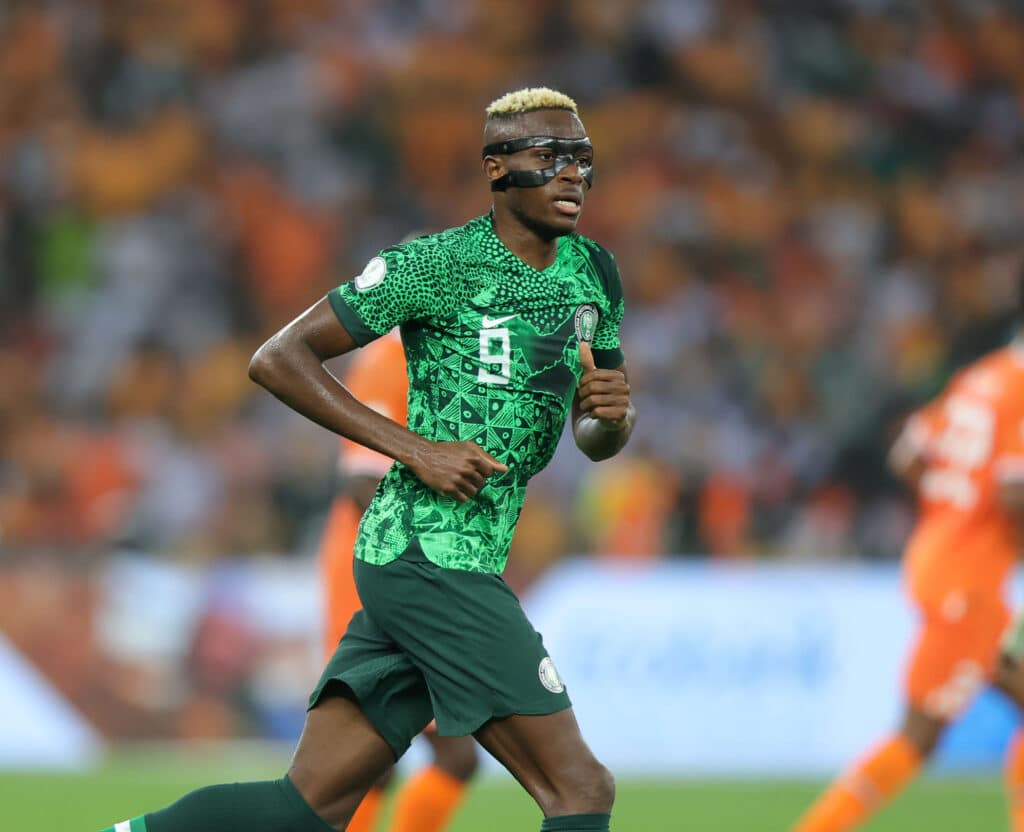
George, therefore, opted for Dessers up top, with Alex Iwobi and Kelechi Iheanacho providing support for the Rangers forward from the flanks. It’s fair to say George’s line-up and set-up worked and allowed Nigeria to flourish in the absence of their top scorer.
Below are three reasons why Nigeria did not miss Osimhen in the game against Ghana:
Finidi George’s progressive approach
Finidi George was backed into a corner going into his debut game in charge of Nigeria. As a member of Jose Peseiro’s backroom staff at the AFCON in Ivory Coast, many expected him to build on the ‘gains’ chalked from the tournament, where the Super Eagles were runners-up.
For many supporters, the fact that Nigeria kept four clean sheets and lost just once throughout the tournament means the team is on the right track and doesn’t need much change. On the back of this, it was always going to be hard for George to try new things, especially as he’s also only an interim coach.
But the Enyimba boss still managed to tweak things a bit by adopting a more progressive approach. Although he stuck to the 3-4-3 formation that Peseiro clung to, the players had more freedom against Ghana, while there was an intent to possess the ball and play forward.
This approach allowed Nigeria to be expansive, pegging Ghana back and creating an enabling environment for the attackers to thrive in the absence of Osimhen.
Super Eagles aren’t overly reliant on centre-forwards as the main outlet for goals
There is absolutely no debate about the quality of Osimhen and his performances at the AFCON typified the kind of world-class striker Nigeria have on their roster. His runs, hold-up play and link-ups were particularly impressive, but he still ended the tournament with just a single goal.
By contrast, centre-back William Troost-Ekong and Ademola Lookman scored more, which emphasises the position that the Super Eagles do not overly rely on their centre-forward as their main outlet for goals.
While Osimhen is an innate goalscorer, the Nigerian team has goals scattered across the pitch, which was once again evident in the chances created against Ghana on Friday.
Aside from the attacking trio of Iheanacho, Dessers and Iwobi getting into goal-scoring positions, there were also half-chances for the supporting cast and, had they been a bit more clinical, the scoreline would’ve been bigger.
Ghana’s experimental defence didn’t offer much of a challenge
Another reason why Nigeria didn’t miss Osimhen much against Ghana is that they didn’t face a formidable defence that could’ve given them a proper test.
Black Stars coach Otto Addo named an experimental backline, with midfielder Edmund Addo partnering debutant Jerome Opoku at centre-back. The latter’s inexperience ultimately showed when his outstretched arm caused a penalty for Nigeria’s opening goal before being sent off in the second half.
The Super Eagles, therefore, played the final 35 minutes against a 10-man Ghana. It’s fair to say Ghana’s experimental backline didn’t offer much of a challenge to Nigeria and it’s probably why they didn’t even need Osimhen to win the game.

